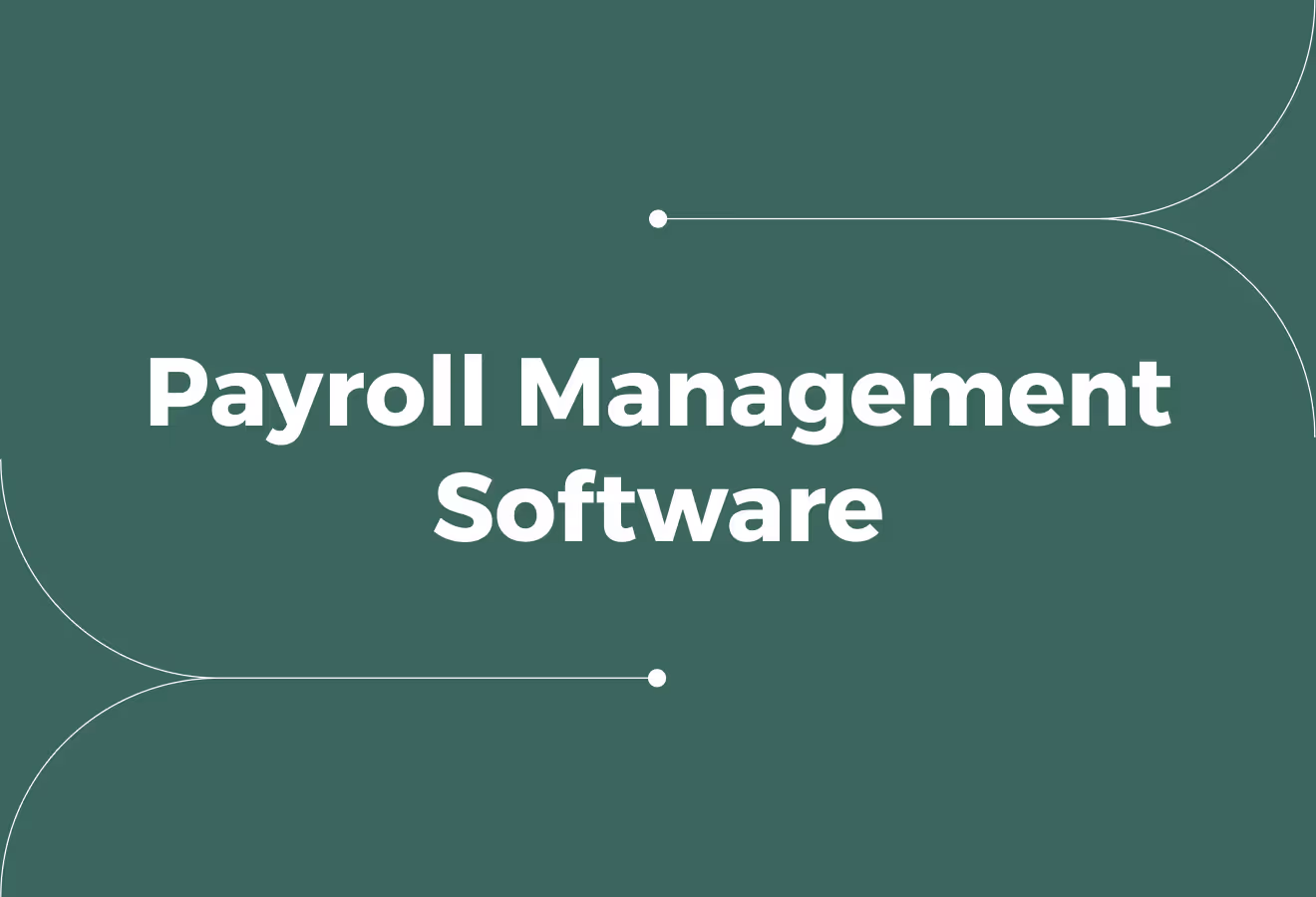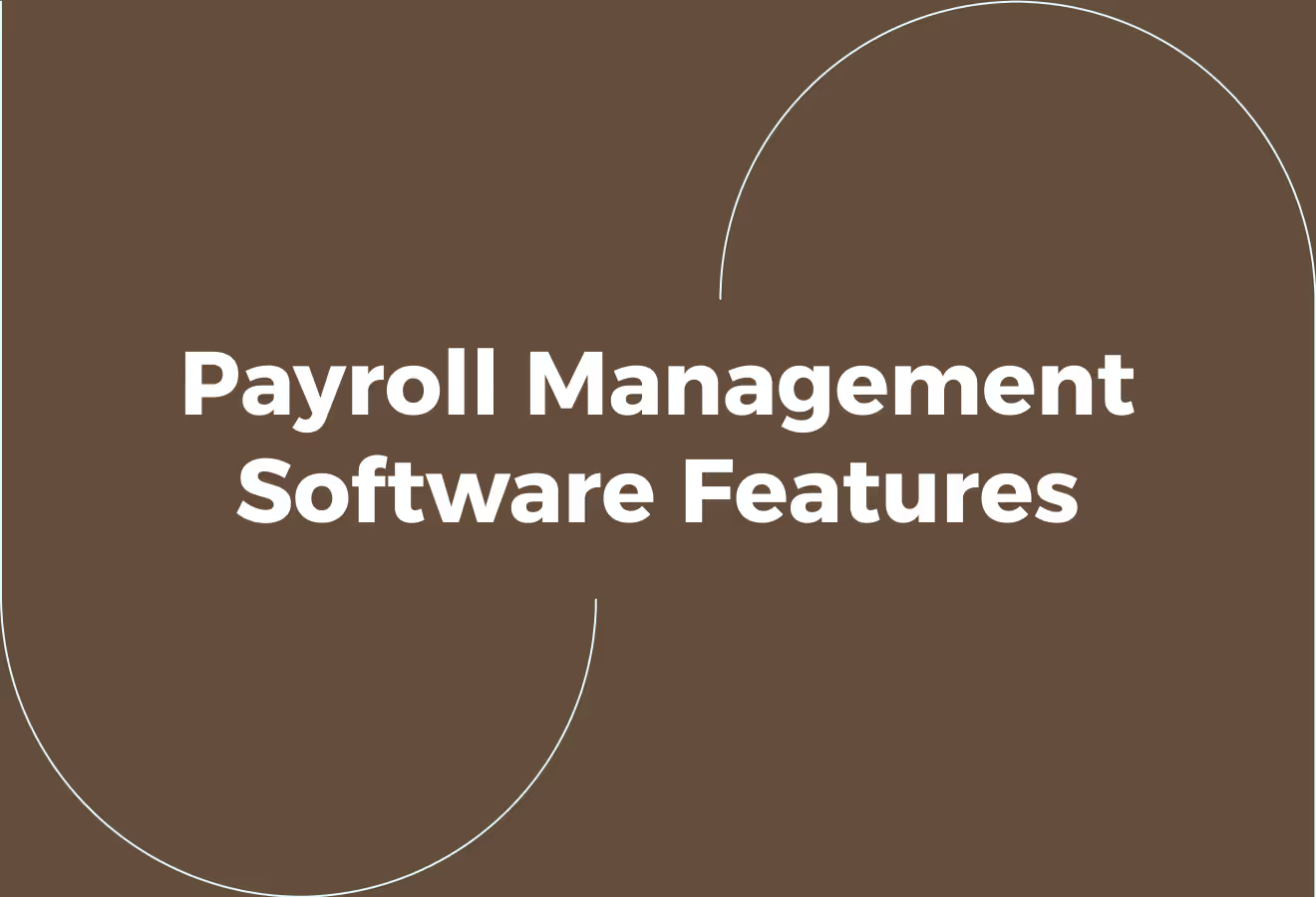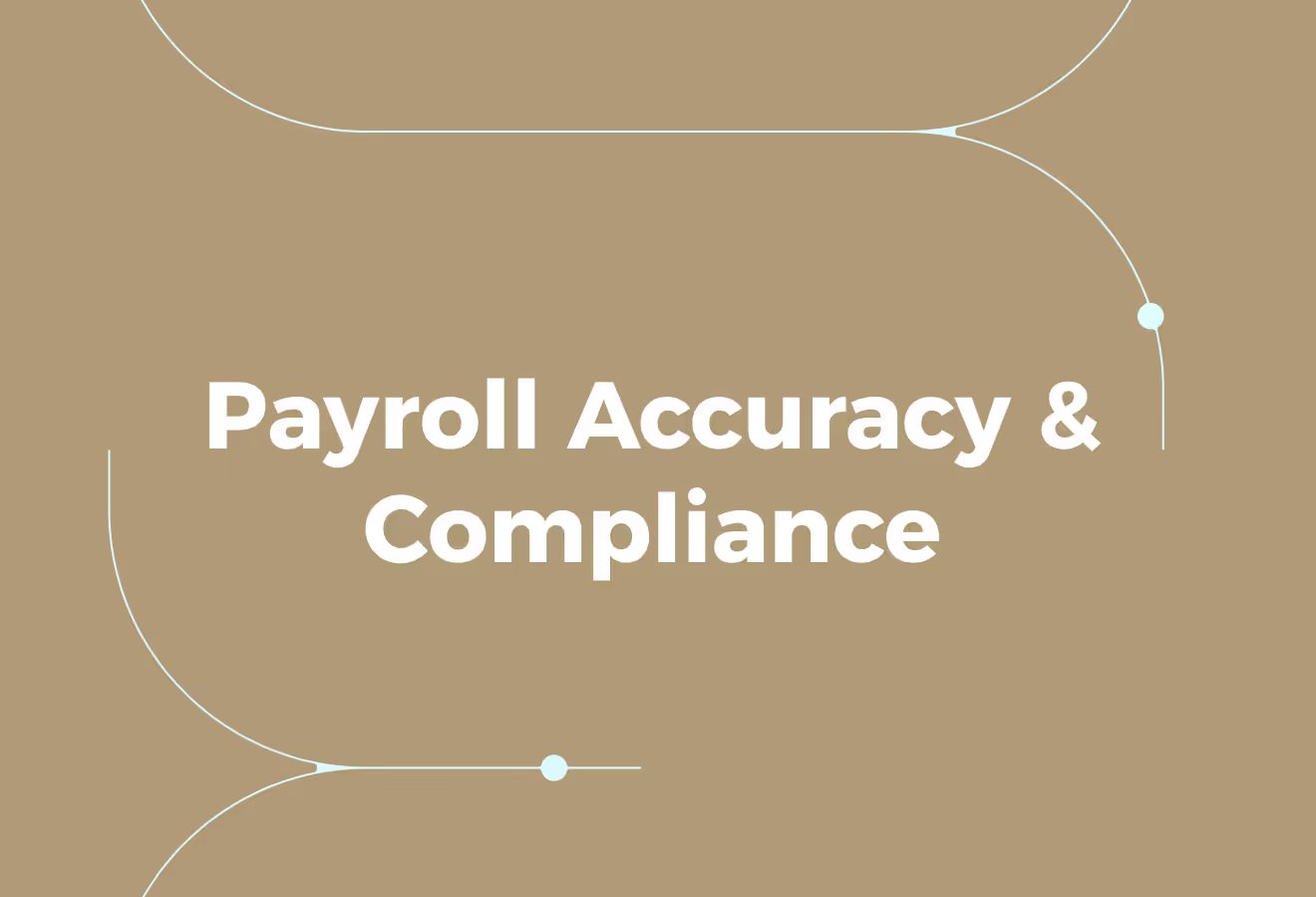12 Essential Payroll Management Software Features to Prioritise

12 Essential Payroll Management Software Features to Prioritise
Every payroll manager has felt the pinch of late cheques, tax mistakes, and manual time cards. That's where payroll automation becomes necessary. For many businesses, adopting the right system means embracing the automation of payrolls, which streamlines compliance, eliminates repetitive tasks, and improves accuracy. This article outlines essential payroll management software features to prioritise. It explains how core functions, such as payroll processing, tax calculations, direct deposit, and compliance reporting, reduce risk and save time. Ready to learn which features matter and how payslips, benefits management, deductions, payroll analytics, and multi-currency support fit into a reliable system?
Cercli’s global HR system makes it simple to adopt these essential features while improving payroll security, gross-to-net calculations, time and attendance, and leave management, helping your team run smoothly.
12 Essential Payroll Management Software Features to Prioritise

Payroll management software automates the process of paying salaried, hourly, and contingent workers. Providers of HR technology and specialist payroll firms sell it as standalone products or as modules within broader human capital management systems.
The software speeds up payroll processing compared to:
- With paper-based methods
- Reduces calculation errors
- Allows managers to apply custom pay rules for individual employees
Would you like to see how a payroll cycle operates in practice? This is especially important in dynamic global hubs like Dubai, where speed and compliance are key to efficient business operation.
Market Momentum: The Numbers that Matter
A recent market report projects the global HR payroll software market will grow from $35.26 billion in 2024 to $91.69 billion by 2034, driven by cloud adoption, digital transformation, and government initiatives. North America currently leads the market, while Asia Pacific and SMEs (small and medium-sized enterprises) are among the fastest-growing segments.
Which features are drawing that investment?
How Payroll Software Works: The Step-by-Step Flow
Payroll software turns employee data into net pay through a sequence of processes:
- Collecting data
- Applying pay rules and statutory calculations
- Distributing funds
- Producing reports and audit records
The system treats time and attendance, salary elements, deductions, and benefits as inputs and runs automated pay runs that feed:
- Bank transfers
- Payslips
- Statutory returns
Below are the core components that make that flow reliable.
Data Input: The Source for Accurate Pay
The system needs accurate inputs:
- Clocking times
- Timesheets
- Salary rates
- Bonuses
- Commissions
- Leave balances
- Sick pay
- Contractor rates
- Deduction details
Employee self-service portals and time and attendance integrations reduce manual entry and fraud.
To improve payroll reconciliation, HRIS, ERP, and point-of-sale integrations feed:
- Headcount
- Job
- Cost-centre data through APIs
Calculations: Rules, Taxes, and Net Pay
Payroll engines apply:
- Gross-to-net logic
- Tax withholdings
- Pension
- Retirement contributions
- Statutory payments
- Overtime rules
- Back pay
- Deductions such as garnishments
Custom pay rules allow you to:
- Manage shift premiums
- Allowances
- Bonus calculations at scale
Batch processing, automated tax tables, and validation rules reduce human error during each pay run.
Compliance: Staying Aligned with Local Law
Payroll systems update statutory rates and reporting formats so pay runs remain compliant with local and national regulations. They keep audit trails, support year-end reporting, and manage statutory filings where available.
Multi-jurisdiction payroll capability and compliance management are crucial for organisations with employees across regions.
Distribution: Moving Money Securely and On Time
After calculations, payroll software handles bank integration for:
- Direct deposit
- Prepares cheque runs
- Sends digital payslips
- Supports alternative payment rails, such as digital wallets, where supported
Scheduling, payment batching, and bank file generation streamline settlement and facilitate payroll reconciliation with the general ledger.
Reporting and Analytics: What Payroll Data Reveals
Payroll reporting and analytics give insight into:
- Labour cost
- Benefits spend
- Overtime trends
- Headcount changes
- Pay equity
Dashboards, custom reports, exportable datasets, and payroll reconciliation tools help finance and HR teams measure:
- Cost per employee
- Run audit checks
- Support budgeting decisions
Deployment Options: Where Payroll Software Resides
You can deploy payroll on-premise, as cloud-hosted software, or through Software as a Service (SaaS).
Each model affects:
- Maintenance
- Security
- Update cadence
- Integration options
Cloud and SaaS deployments often simplify automatic statutory updates and scale more easily for remote teams.
Who Sells Payroll Software and When to Choose Standalone or Integrated
Payroll comes from specialist payroll providers and broader HR technology vendors.
Smaller firms often choose standalone payroll for cost and simplicity, while larger organisations favour integrated HCM suites for:
- Unified HR
- Benefits administration
- Workforce management
What matters is suitability:
- Payroll processing
- Time and attendance
- Tax calculation
- Year-end reporting
- Payroll reconciliation
These factors must match your organisation’s size and complexity.
Related Reading
- Why Outsource Payroll Processing Services
- Employee Payroll Management
- What Is Payroll Management in HR
- What Is the Payroll Tax Rate
- How Much Does Payroll Processing Cost
12 Essential Payroll Management Software Features

1. Secure Access for Your Entire Workforce: Enterprise SSO, Admin Control, and Local Hosting
Security for payroll data starts with controlled access. Implement a standard single sign-on system so that employees and administrators use a single credential set, paired with multi-factor authentication for sensitive tasks. Give administrators the highest level of access to manage users, roles, and system settings while keeping routine screens limited for managers and staff.
For organisations operating in the Middle East, provide local hosting options in the UAE or Saudi Arabia to meet data sovereignty rules and keep payroll records within the required jurisdiction.
2. Reports: Real-Time Workforce Insights You Can Act On
Real-time reporting removes delays and reduces reliance on manual reconciliation.
Offer predefined reports and allow users to:
- Customise filters for leave balances
- Attendance
- Payroll costs
- Payslip summaries
You can export data for accounting or analysis.
Error-free, timestamped reports feed payroll analytics and workforce planning, supporting quick corrective action when discrepancies arise.
3. Role-Based Access: Build Custom Roles and Fine-Grained Permissions
Role-based access control allows you to match permissions to organisational structure. Create custom roles and adjust permissions by location, jurisdiction, or department to ensure sensitive payroll data remains restricted.
Grant managers and HR teams the necessary functions, such as approving timesheets or viewing payslips, while limiting access to salary details and system configuration.
4. Full Visibility and Compliance Tracking with a Complete Audit Trail
Track every change with an activity log that records:
- Who made edits
- What changed
- When
Maintain detailed audit trails for contract amendments, workforce data updates, and payroll adjustments, allowing finance and HR to trace decisions. Configure real-time notifications for exceptions or rule breaches to keep teams informed and support statutory audits.
5. Security Standards: Certified and Monitored Protection for Payroll Data
Protect payroll with certified, monitored, and regularly tested security controls, including:
- Encryption at rest and in transit
- Network monitoring
- Intrusion detection
Implement strict access controls and conduct routine security assessments to reduce the risk of data breaches. Secure payroll systems safeguard employees' financial information and facilitate compliance with relevant regulations.
6. Compliance with Labour Laws: Built-in Rules for Region-Specific Requirements
Embed labour law compliance so payroll processing respects local rules, such as:
- WPS in the UAE
- GOSI in Saudi Arabia
- DEWS contributions in Dubai
Keep statutory calculations up to date and record mandatory deductions and employer contributions to avoid fines or missed payments. Provide jurisdiction-specific configuration so payroll runs align with local reporting and remittance cycles.
7. Integrated Payroll: Connect HR, Accounting, and Third-Party Systems
Integrate payroll with HR, accounting, and other business systems to eliminate duplicate entries and expedite payroll processing. Use APIs and connectors to synchronise employee master data, the chart of accounts, and journal exports, allowing payroll to post directly to finance.
Centralised data flows reduce reconciliation time and increase accuracy across systems.
8. Time Tracking Integration: Link Hours to Payroll and Reduce Disputes
Direct integration between payroll and time tracking or time and attendance systems ensures that hours worked are automatically fed into payroll calculations. Capture shifts, overtime, and breaks from the timekeeping tool and apply pay rules consistently to limit manual adjustments and payroll errors.
Automation reduces payroll processing time and lowers the risk of wage disputes.
9. Direct Deposit: Fast, Secure Salary Payments by Bank Transfer
Offer a reliable direct deposit service so employees receive their salary payments promptly and securely into their bank accounts: Automate bank file generation and reconciliation to cut administrative overhead compared with manual cheque handling.
Provide electronic payslip distribution alongside bank transfers to give employees complete visibility of deductions and gross-to-net calculations.
10. Expense Management: Automate Claims, Approvals, and Reimbursements
To streamline reimbursements, include:
- Expense capture
- Approval workflows
- Payment routing
Allow employees to submit receipts via mobile or web, route approvals to the right manager, and feed approved expenses into payroll or accounts payable for payment. Maintain a clear audit trail of expense claims for internal controls and external audits.
11. Employee Self-Service: Empower Staff to Manage Payslips and Personal Data
Give employees a secure portal to update:
- Personal details
- View payslips
- Check leave balances
- Submit requests
Self-service reduces routine queries to HR and speeds corrections to bank details or tax status. Offer mobile access and electronic document delivery, allowing staff to retrieve payroll records from anywhere.
12. Tax Compliance and Filing: Automate Tax Calculations and Statutory Returns
Automate tax rate updates, withholding calculations, and filing preparation so payroll stays compliant with changing tax rules. Generate tax reports and year-end documentation for employees and authorities to reduce manual preparation and the risk of miscalculations.
Integrate tax outputs with accounting to simplify remittance and record keeping.
Why Payroll Accuracy and Compliance Matter

Payroll sits at the centre of every business operation.
When pay runs are accurate and compliant, employees receive:
- Correct payslips
- Tax calculations are reliable
- Payroll processing
It feeds clean data into accounting and payroll reporting. When errors occur, they erode trust and necessitate time-consuming payroll reconciliation and manual corrections, diverting resources away from core work. How many hours does your team lose fixing simple mistakes?
Keep Your People Paid and Engaged: Employee Satisfaction and Trust
Employees expect to be paid correctly and on time. Research shows 24% of employees would start looking for a new job after just one payroll error.
These reduce payroll queries and preserve morale with these simple features, such as:
- Employee self-service
- Clear payslips
- Accurate deductions
- Timely benefits administration
What would lower staff churn and fewer payroll calls mean for your HR team?
Avoid Fines And Audits: Compliance Risks and Legal Exposure
Payroll mistakes can lead to fines, audits, and legal disputes when tax filings are late, social contributions are incorrect, or staff are misclassified. A reliable payroll system with compliance management, audit trails, and automated tax calculations reduces risk across jurisdictions and helps meet deadlines.
Do you have systems in place that flag changes in legislation and enforce accurate payroll workflows?
Reputation on the Line: How Payroll Affects Trust Outside the Company
Late or incorrect payments damage credibility with:
- Employees
- Regulators
- Investors
Transparent payroll reporting, secure payroll data, and clear audit logs prove that payroll runs are reliable and defensible. How would stronger audit trails and secure payroll integration change external confidence in your organisation?
Plan with Confidence: Financial Control and Forecasting
Payroll usually forms the most significant recurring expense for a business. Accurate payroll analytics, payroll reporting, and integrated payroll accounting ensure budgets and forecasts reflect reality.
Finance teams can forecast cash flow and set headcount plans without last-minute guesswork, when payroll data links to:
- Time and attendance
- Leave management
- Payroll reconciliation
How would consistent, integrated data improve your financial decisions?
Operational Efficiency: Automation, Features, and User Experience
Payroll automation reduces manual data entry and limits errors.
Core payroll management software features support, where needed, to include:
- Multi-currency payroll
- Payroll processing automation
- Payslip distribution
- Tax and statutory calculations
- Employee self-service
- Time and attendance integration
- Benefits administration
- Employer of Record
Add secure data storage and role-based access to keep sensitive information safe while streamlining payroll workflows. Which of these features would cut your run time and error rate the most?
Auditability and Reporting: Proving You Did It Right
Clear reports, audit trails, and versioned payslips make audits faster and less stressful. Payroll reporting and payroll analytics reveal trends, exceptions, and cost drivers, enabling you to act on anomalies before they become risks.
Do your current reports surface the anomalies you need to catch?
Scaling and Global Workforces: Multi-Country Payroll and Contractor Pay
As companies hire across borders, you need systems that handle:
- Multi-currency payroll
- Compliant international contracts
- Cross-border payroll reconciliation
In a global business hub like the UAE, this integration is vital. Employer of Record services and compliant contract templates help reduce the overhead associated with local legal requirements and social contributions. Can your payroll solution pay contractors and full-time staff across many territories without adding manual work?
Security and Data Integrity: Protecting People and Processes
Payroll contains the most sensitive employee data. Data security, encryption, access controls, and regular reconciliations stop leaks and mistakes. Reliable backups and clear change logs keep a single source of truth for employee records, reducing duplicate entries and conflicting information.
Navigating the Complexities of MEA Labour Law and Remittance Cycles
Cercli helps organisations in the Middle East simplify HR operations, stay compliant with local regulations, and run payroll with confidence by handling:
- WPS registrations in the UAE
- GOSI in Saudi Arabia
- DEWS contributions
- Compliant contracts
Cercli is built for global workforce management and provides a global HR system that supports payments to contractors and employees in over 150 countries through:
- Multi-currency payroll
- Employer of Record services
- Compliant international contracts
Related Reading
- How Does Payroll Processing Work
- AI in Payroll Processing
- Benefits of Payroll Outsourcing
- Payroll Automation Benefits
- Payroll Tax vs Income Tax
Benefits of Payroll Management Software

Payroll management software reduces time spent on pay runs and lowers error rates by automating routine payroll processing tasks. It handles payroll calculation, gross-to-net computation, deductions, and benefits administration, so payroll staff focus on exceptions rather than data entry.
The software produces:
- Payslips
- Payroll journals
- Statutory reports on schedule
With built-in payroll reporting, payroll analytics, and a payroll dashboard, you see:
- Payroll expenses
- Cost-to-company
- Headcount impact at a glance
What would you do with the hours freed up when manual reconciliation and repeated corrections disappear?
Automating Pay Runs and Repetitive Tasks
Automated workflows schedule pay runs, batch processing, and report generation. Timesheet management and attendance integration feed hours directly into pay calculations. The system performs tax calculations, statutory contribution adjustments, and net pay computations, then initiates direct deposit and bank reconciliation.
Payslip generation and employee self-service reduce queries and speed distribution. APIs connect payroll with timekeeping, HR, and accounting, allowing payroll journal entries to post automatically and enabling the pay period to close faster.
Keeping Payroll Costs Visible and Controllable
Payroll software tracks both recurring payroll expenses and one-time items, such as bonuses and expense reimbursements.
Salary registers, pay element breakdowns, and report scheduling allow finance and HR to inspect payroll spend by:
- Department
- Role
- Period
Use payroll analytics to compare headcount-related costs against revenue and to forecast future payroll expense.
On profit and loss, detailed reports help managers see the impact of:
- Salary adjustments
- Overtime
- Benefit changes
Reducing Tax Risk and Ensuring Compliance
A payroll system enforces statutory compliance and supports tax remittance by applying current tax rules and statutory contribution rates. Automated statutory filings, audit trail, and report templates reduce the risk of penalties for missed remittances.
Where businesses operate across jurisdictions, multi-country payroll and multi-currency features manage local tax regimes and reporting requirements.
Built-in controls make it easier to apply:
- Tax exemptions
- Handle tax code changes
- Keep records ready for inspection
Connecting Payroll to HR and Finance Systems
Secure integrations bring HR, payroll, and accounting data into a single workflow. Employee onboarding, master data updates, and benefits enrollment sync to payroll, so you avoid duplicate entries.
Accounting integrations automate payroll ledger posting and reconcile payroll bank movements with payments. API integrations and cloud payroll access reduce manual handoffs and speed month-end closing.
Protecting Sensitive Payroll Data
Payroll systems store confidential data such as:
- Salary details
- Bank accounts
- Tax identifiers
Role-based permissions and finely grained access controls limit who can view or change salary information. An audit trail records changes to payroll records and user actions for compliance and investigations. Encryption, secure backups, and access logging keep payroll data safe while allowing authorised collaboration.
Book a Demonstration to Speak with Our Team about Our Global HR System
Cercli provides HR and finance teams with a single platform to manage payroll, track leave, onboard staff, and pay contractors across 150+ countries, while ensuring full compliance in the UAE, Saudi Arabia, and the wider MENA region.
The system handles pay runs, gross-to-net calculations, and automatic tax and social security calculations, producing payslips and payroll reports without the need for manual spreadsheets. Do you want to minimise payroll errors and expedite month-end processing?
Run Compliant Payroll Across the UAE, Saudi Arabia, and MENA Without Guesswork
Local payroll rules change often.
Cercli pushes compliance updates, applies country-specific payroll rules for:
- End-of-service pay and gratuity
- Calculates statutory deductions
- Prepares regulatory filings where supported
You receive audit trail records, payroll journals for accounting, and configurable payroll schedules, ensuring pay runs align with local practices and company policies. Do you need support for wage protection and local tax reporting?
Global Contractor Payments and Multi-Currency Payouts
Manage contractor payments globally with multi-currency support, automated invoice verification, and a streamlined payout workflow that supports bank transfer and virtual accounts.
To reduce transfer fees and reconciliation time, Cercli records:
- Contractor classifications
- Tax withholding where required
- Creates payment batches
Do you want contractor payments integrated with expense management and accounts payable?
Automation and Core Payroll Management Software Features
Cercli automates:
- Time and attendance integration
- Overtime and shift calculations
- Benefits and deductions
- Garnishments
- Statutory contributions
It supports employee self-service for payslips, tax forms, and leave requests, while providing payroll administrators with role-based access and approval workflows.
The platform includes:
- Payroll calculators
- Configurable pay components
- Batch processing
- A stable API for HRIS and accounting integrations
Interested in reducing manual data entry with scheduled pay runs?
Onboarding Employees Faster and Keeping Records Clean
Handle offer letters, digital contracts, document collection, and employee data capture from a single onboarding flow that populates payroll and HR records automatically. You can validate national IDs and bank details, set probation workflows, and link asset assignments to employee profiles, ensuring that laptop and phone inventory remains accurate.
Onboarding integrates time and attendance, as well as benefits enrollment, without requiring duplicate data entry. Do you want to shorten the time to productivity for new hires?
Leave Management, Tracking, and Workforce Visibility
Track:
- Accrual policies
- Leave balances
- Approvals with configurable leave types and blackout windows
Managers view:
- Team calendars
- Approve time off from mobile
- See the impact on payroll costs before approving
Leave feeds into pay calculations for unpaid absences and statutory entitlements, ensuring payroll remains accurate. Would you like to see leave reports by department and cost centre?
Asset Tracking and Employee Equipment Control
For expired warranties, assign:
- Assets
- Record serial numbers and condition
- Set check-out and return dates
- Automate reminders
Asset records are linked to employee profiles, enabling payroll and IT to share a single source of truth when an employee leaves or transfers. You can run audits and export asset reports for internal controls and depreciation schedules.
Do you need tighter control over company equipment?
Reports, Dashboards, Audit Trails, and Compliance Evidence
With exportable audit trails and secure record retention, Cercli provides:
- Payroll reporting
- Headcount analytics
- Compensation summaries
- Compliance evidence
To answer payroll queries quickly, role-based dashboards allow HR leaders and finance teams to slice data by:
- Country
- Department
- Employment type
Automated payslip distribution and tax statement generation reduce inbox requests and ad hoc spreadsheet work. Would you like custom reports delivered on a regular schedule?
Security Scale and Integrations for Growing Teams
The platform utilises cloud-based architecture, data encryption, and role-based access controls to protect payroll data, supporting companies with 25 to 500+ employees across multiple markets.
Integrations include:
- Time and attendance systems
- Accounting software
- Banking partners for direct deposit
- Identity verification tools via API
Cercli supports configuration for shared service centres and multi-entity consolidation for group reporting. Do you need help mapping integrations to your tech stack?
Try It Live: Book a Demonstration and See How It Works
Book a demonstration to see:
- Payroll automation
- Local compliance
- Multi-currency contractor payouts
- Onboarding flows
- Leave management
- Asset tracking
- Payroll reporting in action on your data
The demonstration can focus on your priority countries and use cases, and shows how pay runs and compliance updates operate in real-time. Would you like to schedule a session for this week?
Related Reading
- How Is Payroll Tax Calculated
- Employee Payroll Automation Software
- Best Payroll Software for Small Businesses
- How to Do Payroll for a Small Business










